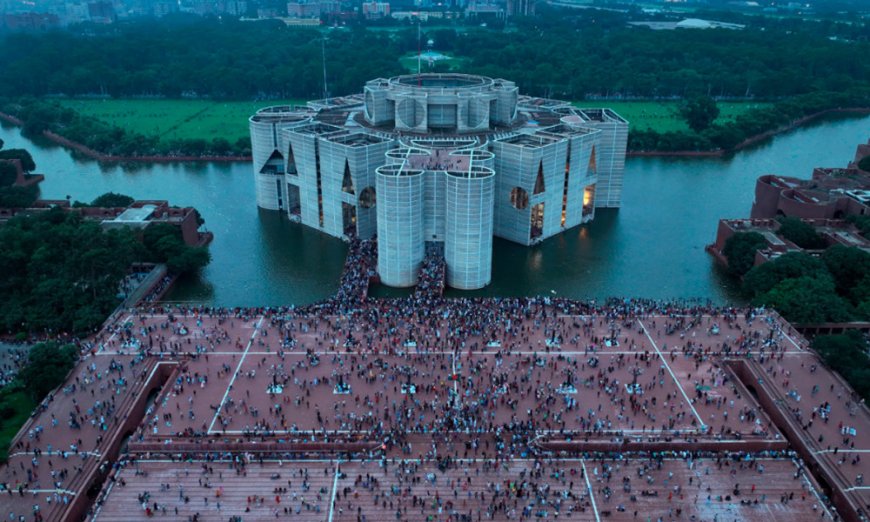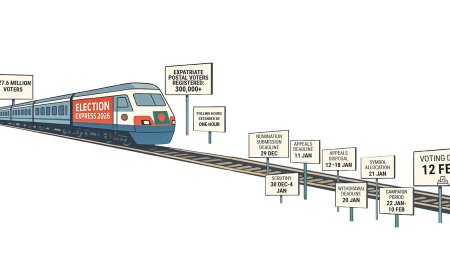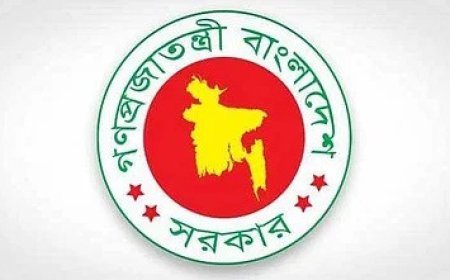Reform Disputes Escalate Political Turmoil
The main opposition party, the BNP, maintains that the general election must be conducted by February.

Political Uncertainty Deepens as Reform Disputes Stall Election Consensus
Bangladesh's ongoing political crisis has intensified, with mounting disagreements among parties casting doubt over the scheduled parliamentary election in February next year.
The main opposition party, the Bangladesh Nationalist Party (BNP), insists the general election must be held by February, in accordance with an understanding reportedly reached during a June meeting in London between Chief Adviser Prof Muhammad Yunus and BNP’s acting chairman Tarique Rahman.
In contrast, several smaller parties—including Bangladesh Jamaat-e-Islami, the National Citizen Party (NCP), and Islami Andolan Bangladesh (IAB)—have called for sweeping state reforms ahead of the election. Their demands include holding the national polls under a proportional representation (PR) system, completing local government elections beforehand, and ensuring justice for the July massacre through the implementation of the July Charter.
The BNP, however, has strongly rejected these proposals, maintaining its support for the traditional first-past-the-post system and prioritising national elections over local ones.
"Some parties are pushing for PR-based polls and local elections first in a deliberate effort to deepen the political crisis," Syed Moazzem Hossain Alal, an adviser to the BNP chairperson, told the Daily Sun. "This is a fragile transitional phase. Destabilising the process now would only jeopardise any prospect for meaningful change."
BNP Standing Committee member Salahuddin Ahmed echoed the sentiment, describing the PR demand as "irrational and unfit for the country’s context." He argued that local elections must be held under an elected government, not as a precursor to national polls. “Differences are natural in a democracy, but they must not turn into conflict. Otherwise, anti-democratic forces could exploit the chaos,” he warned.
Speaking at a programme in South Keraniganj on Saturday, Salahuddin noted that several parties recently held a rally at Suhrawardy Udyan demanding PR-based elections for both parliamentary houses. “Their dreams of clinging to power through so-called reforms will be shattered. If necessary, we will launch another movement for democratic elections.”
He also alleged that many of the parties backing the PR system are unlikely to secure enough votes to retain their deposits.
At the same event, BNP’s Gayeshwar Chandra Roy declared, “The election must take place. No one can stop it if we mobilise on the streets. For those who say we've achieved nothing in 16 years—watch what’s coming.”
He added that the BNP expects the chief adviser's February election pledge to be fulfilled.
BNP leaders have repeatedly criticised the reform demands as divisive, claiming the PR system is unsuitable for Bangladesh and could fragment governance. They argue that local elections should only be held under a nationally elected government to ensure legitimacy.
Meanwhile, Jamaat and IAB have been vocal in advocating not only for electoral reform but also for broader administrative changes to ensure free and transparent polls.
On Wednesday, Tarique Rahman reaffirmed the BNP’s commitment to electoral integrity. “All 125 million voters deserve to cast their ballots freely. We must stay vigilant against any plot to derail this democratic process,” he said, urging supporters to remain united and alert.
Tarique also cautioned against adopting the PR system without consensus, warning that it could exacerbate national divisions. “At this critical juncture, unity must prevail. Political leaders must consider whether the PR model will bring cohesion or chaos.”
IAB recently held a major rally at Suhrawardy Udyan, pressing for a 16-point reform agenda that includes PR-based elections and holding local government polls prior to the national vote.
“There is no alternative to proportional representation. Today’s rally demonstrates overwhelming public support,” said IAB Ameer Reazul Karim.
The event was attended by representatives of several Islamist and smaller parties—including Jamaat-e-Islami, Nezame Islam, Khelafat Majlish, Islami Oikya Jote, Gono Odhikar Parishad, and Amar Bangladesh Party—all backing IAB’s call for reforms.
In a separate programme in Feni, Jamaat Ameer Shafiqur Rahman said, “We will not accept any administrative coup or electoral engineering. The PR system will help eliminate black money and muscle power from politics.” He also criticised the BNP for resisting the reform agenda.
Speaking to the Daily Sun, IAB Senior Joint Secretary General Gazi Ataur Rahman said, “It would be unfortunate if the BNP continues to reject the PR model and the demand for local elections first. We hope they do not escalate tensions further.”
Jamaat leaders have accused the BNP of obstructing genuine reform, while BNP officials say the consensus commission has yet to produce any meaningful dialogue.
The ongoing rift over electoral models, the timing of local elections, and the broader state reform agenda has plunged the election process into uncertainty and exacerbated the already volatile political climate.
Political analyst Prof Sabbir Ahmed of Dhaka University commented, “These are, at heart, policy disagreements. But for the sake of national stability, they must not be allowed to escalate into outright conflict.”
What's Your Reaction?






















































































